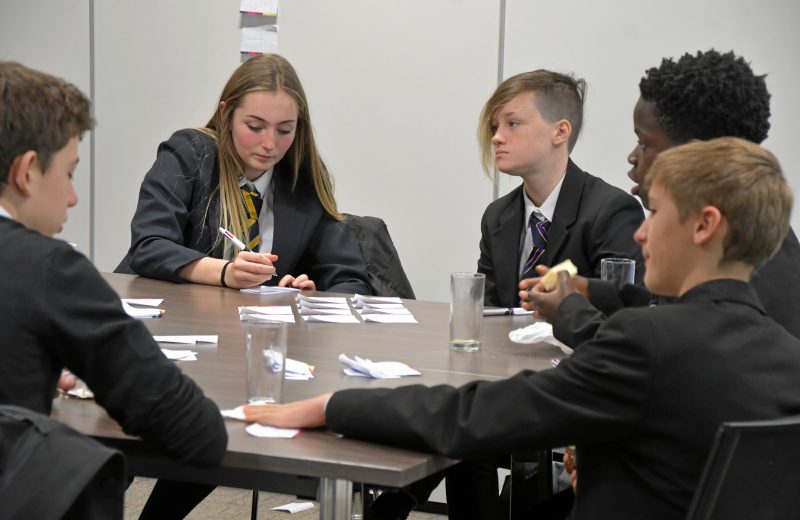Here at the Franklin we aspire not only to do great science, but also to inspire the next generation of scientists. To this end, we have set an ambitious target to reach 10,000 students per year in state schools in our local area. Like in all our other projects, collaboration with expert partners is essential to reach our target. In this case, we have partnered with Education Business Partnerships based in West Berkshire, and are taking part in their Hi-Tech Horizons programme, which introduces school students to businesses in the tech industry.

These school visits are vitally important in raising the aspirations of local students. Research by King’s College London into the aspirations of 10-14 year olds has shown that one of the primary barriers to students aspiring to be scientists is a lack of family ‘science capital’. Science capital is the amount of science-related qualifications, understanding, knowledge (about science and science careers), interest and social contacts (knowing someone in a science-related job) a young person has. Those coming from families with little or no science capital can often find it difficult to understand the range of career opportunities available within the science and technology field. Also, even if they are aware of the opportunities, they may find it difficult to imagine themselves in such roles. Therefore, the opportunity to meet and interact with scientists is extremely important in removing these barriers.
During visits to schools, we discuss Rosalind Franklin’s work and career, the impact the Franklin hopes to have on the life sciences field, and future career options at the Franklin and in generally in science. We also engage the students in interactive activities. At a recent visit to the Highdown School, Reading, year 10 students learnt about DNA base pairing, which allowed them to complete a complementary base pair sequence. The students really enjoyed the activity, and it prompted many interesting discussions about genes and DNA sequences.
Our Director of Communications and Culture, Laura Holland, outlines why engaging with the students is so important to us, “By engaging directly with students and showcasing our work we will be able to engage their interest in human health and disease, showcase the impact they could have by joining the sector and become part the research community, making a real tangible difference”.
We look forward to many successful school visits in the future.